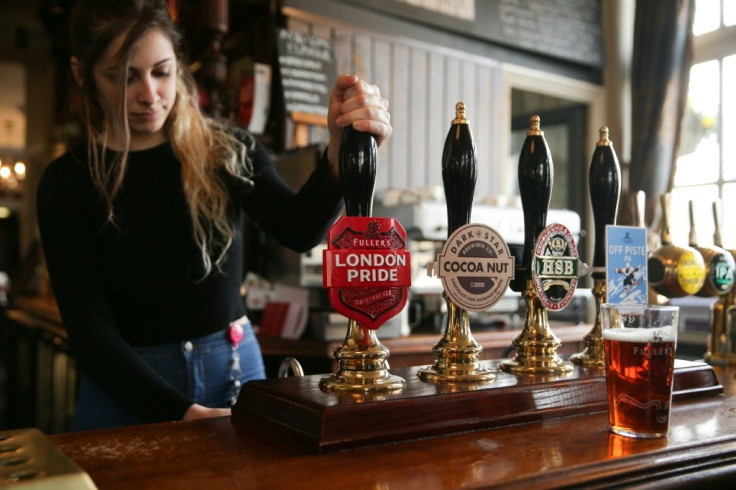Has The British Pub Industry Finally Bottomed Out After Years Of Closures?

One of the iconic staples of British culture, the local pub, might be making a comeback after years of suffering closures due to rising costs.
The Office of National Statistics recently revealed the number of pubs in the U.K. increased year-over-year by 320 to 39,135 as of March 2019 – the first such advance in a decade.
Although small, this gain represented a turnaround of sorts – over the prior 10 years, 732 pubs in the U.K. vanished annually on average. Indeed, in 2008 the country boasted more than 50,000 pubs, while there were 52,500 in 2001.
J. D. Wetherspoon (JDWPY), one of Britain’s largest pub operators, recently said it planned to invest $260 million in the next four years to build new pubs and rehabilitate existing ones, creating 10,000 new jobs.
Wetherspoon currently owns 875 pubs and 58 hotels in the U.K. and the Republic of Ireland and employs about 44,000 workers.
Patrick Clover, CEO of marketing software firm Stampede which advises pubs, said the reduction in the number of pubs over the last decade "has been heart-breaking, following devastating changes to business taxes and alcohol duties, but I hope these figures signpost a reversal of fortunes."
However, the Campaign for Real Ale, a consumer organization that advocates for pubs, expressed some skepticism.
"We welcome this data that shows a slight increase in the number of open pubs nationally," Chairman Nik Antona said. "Unfortunately, pubs continue to close, particularly in small or rural communities. This means the loss of the social, cultural and economic benefits that come with a well-run local [pub]."
Another trade group, the British Beer and Pub Association said it was "cautiously optimistic" about the government’s figures, but maintained the conditions that caused pub closures remain.
"Our pubs continue to be under severe pressure to stay open,” an association spokespersonsaid. “Closures have been driven by increasing and considerable cost pressures from a range of sources; particularly high beer duty, unfair business rates and [the value-added tax]. This is deeply concerning because pubs are a great British institution and are often the social hub of their local community.”
Since 2001, the U.K. has lost about a quarter of its pubs, many of them smaller independent establishments unable to compete with larger chains.
The beer duty imposed by the government on every pint sold has been particularly burdensome to pubs.
Between 2008 and 2013, the beer duty surged by 42% while beer sales dropped by 24% and some 5,000 pubs closed.
Prior to the recent election, Ralph Findlay, the chief executive of Marston’s, a major brewer, implored Prime Minister Boris Johnson to save the pub industry by reducing the beer duty.
Findlay noted that on average, the beer duty now amounts to about 54 pence (72 cents) for each pint sold.
“The average pub is paying 140,000 pounds ($187,000) a year to the government and a big chunk of that is beer duty,” he said.
The government tax authority reported the beer duty alone generated 3.6 billion pounds ($4.8 billion) in 2018, up 5% from 2017.
“There are a wide range of cost pressures, but for pubs and particularly the community pubs that matter locally, about 70% of all the sales across the bar are beer,” Findlay added. “It’s the one of the biggest costs the pub has to bear and it’s one of the easiest things for the government to manage.”
Findlay noted that the pub industry in the U.K. employs nearly 1 million people, half of whom are 25 or younger.
“[Johnson’s] looking for populist measures. This is something that is, I think, hugely popular,” he said. “There’s plenty of evidence that if he doesn’t do something about duty, the amount of money the government collects from pubs will decline.”
© Copyright IBTimes 2024. All rights reserved.





















